Document Author
Year Published
Topic
- (-) Remove Judges filter Judges
- 100% Access to Justice (14) Apply 100% Access to Justice filter
- Ethics Education (10) Apply Ethics Education filter
- Judicial Ethics (10) Apply Judicial Ethics filter
- Articles & SRLN Briefs (5) Apply Articles & SRLN Briefs filter
- Self-Help Centers (4) Apply Self-Help Centers filter
- Trial Court Self-Help (4) Apply Trial Court Self-Help filter
- Unbundling (3) Apply Unbundling filter
- Courts (2) Apply Courts filter
- Forms (2) Apply Forms filter
- Forms (2) Apply Forms filter
- Simplification (2) Apply Simplification filter
- Strategic Planning (2) Apply Strategic Planning filter
- Triage (2) Apply Triage filter
- Allied Professionals (1) Apply Allied Professionals filter
- Best Practices (1) Apply Best Practices filter
- Best Practices for Self-Help Centers (1) Apply Best Practices for Self-Help Centers filter
- Conferences & Summits (1) Apply Conferences & Summits filter
- Constitutional Issues (1) Apply Constitutional Issues filter
- Impact of Self-Represented Litigant Innovations on Cost and Efficiency (1) Apply Impact of Self-Represented Litigant Innovations on Cost and Efficiency filter
- Justice Tech Entrepreneurs (1) Apply Justice Tech Entrepreneurs filter
- Legal Aid (1) Apply Legal Aid filter
- Libraries (1) Apply Libraries filter
- Linking a Self-Help Center to Other Services (1) Apply Linking a Self-Help Center to Other Services filter
- Presentations (1) Apply Presentations filter
- Private Bar (1) Apply Private Bar filter
- Regulatory Concerns (1) Apply Regulatory Concerns filter
- Reports, Evaluations, Best Practices, Surveys (1) Apply Reports, Evaluations, Best Practices, Surveys filter
- Research (1) Apply Research filter
- Trainer of the Trainer Materials / Curricula (1) Apply Trainer of the Trainer Materials / Curricula filter
- Working Groups (1) Apply Working Groups filter
State
Region
- (-) Remove United States filter United States
Tags
Post date
Search results
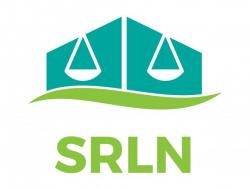
SRLN Brief: Memo on Model Code of Judicial Conduct 2.2 Revisions (SRLN 2012)
This memorandum lays out ways that states can develop state-specific comment language for their judicial codes. The memo reflects recent research, as well as recent state developments as of date of publishing. Judges Judicial Ethics United States SRLN Mem ...
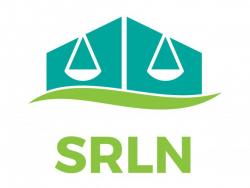
SRLN Brief: Procedural Fairness / Procedural Justice (SRLN 2015)
Research has shown that when defendants and litigants perceive the court process to be fair, they are more likely to comply with court orders and follow the law in the future—regardless of whether they “win” or “lose” their case. This is called procedural ...
Guide: Delaware’s Judicial Guidelines for Civil Hearings Involving Self-Represented Litigants (Delaware 2011)
The Delaware Supreme Court adopted these guidelines, effective May 11, 2011, designed to address concerns that Judicial Officers may have regarding balancing self-represented litigants’ perceptions of procedural fairness while maintaining neutrality in th ...
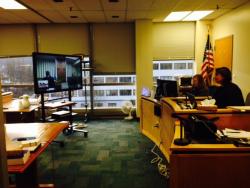
News: Alaska Court Uses Triage and Targeted Pro Bono Unbundled Legal Advice to Settle 80% of Contested Domestic Cases (Alaska State Court System 2015)
Various Supplementary Resources: Listen to a piece about ERP on NPR Learn more about the self-help services in Alaska for family law cases (opens as PDF) Early Resolution for Family Law Cases in Alaska's Courts Faster, Cheaper & As Satisfying: An ...
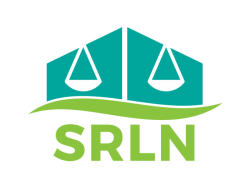
Article: Saving Courtroom Time: Techniques for Judges in Self-Represented Cases (Juhas, McKnight, Zelon, Zorza 2009, rev. 2015)
This article discusses 15 techniques that can increase courtroom efficiency when working with self-represented cases, and summarizes many of the practices suggested in the Judicial Curriculum (srln.org). Recommended Citation: Mark Juhas, Maureen McKnight, ...
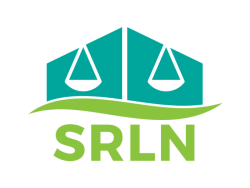
Conference: Harvard Judicial Leadership Conference (SRLN 2007)
Based on the research of the Self-Represented Litigation Network (SRLN), the resources below make up the original judicial curricula prepared by the National Center for State Courts (NCSC), the American Judicature Society, and the National Judicial Colleg ...
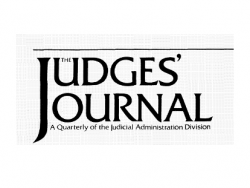
Article: Judicial Techniques for Cases Involving Self-Represented Litigants (Albrecht, Greacen, Hough and Zorza 2003)
This is one of the first article published to stimulate a national dialogue about how judges can best structure and manage their courtrooms to accommodate the needs of self-represented litigants. It remains one of the most accessible introductions to the ...
Article: Some First Thoughts On Court Simplification: The Key To Civil Access And Justice Transformation (Zorza 2013)
From the Abstract: Given the discrepancy between access to justice needs and the resources that are realistically made available, current incremental approaches are almost bound to fail. The only realistic path to providing 100% of litigants with meaningf ...
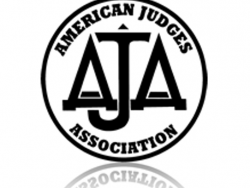
Article: Practical Advice from the Trenches (Wilson & Hutchins 2015)
This article, by Judge Wilson and Judge Hitchins of Baltimore, discusses the value of neutral engagement in easy the tensions for the judge in the SRL courtroom. They write, "Fortunately, through a concept called neutral engagement, judges now have a ...
Article: The Disconnect Between the Requirements of Judicial Neutrality and Those of the Appearance of Neutrality when Parties Appear Pro Se: Causes, Solutions, Recommendations, and Implications (Zorza 2004)
In this article Richard Zorza explores the concept of engaged neutrality which, when employed by the judge, creates a more transparent and arguably more ethically neutral playing field for the self-represented litigant. Recommended Citation: Richard Zorza ...